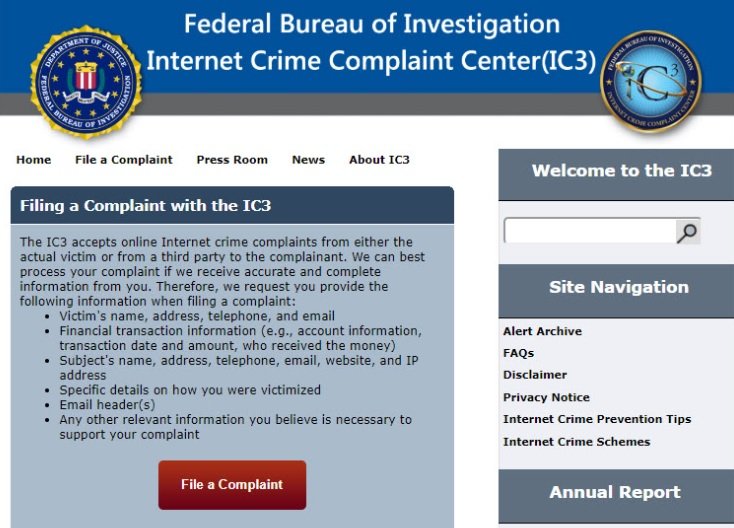Cybersecurity professionals and firms agree when talking about the marked increase in cybercriminal activity over the last few years. Although metrics vary regarding this activity, one of the main indicators is provided by the FBI, which has just revealed its figures on cybercrime complaints over the past year.
According to the federal agency, 467,361 online crime complaints were received during 2019, representing an average of about 1,300 reports per day. This is the highest figure since cybercrime allegations were set in 2000.
These figures were revealed in the Annual Internet Crime Report, published last February 11. According to the cybersecurity report, cybercriminal activity during 2019 represented economic losses of more than $3.5 billion USD for victims (individual users and public and private organizations). In addition, most of the allegations relate specifically to three crimes: phishing attacks, online shopping fraud, and extortion.
On the other hand, the crimes that generated the greatest losses for the affected companies relate to fraudulent transactions via commercial email, financial fraud and identity fraud, which affect individuals and companies as well.
According to the cybersecurity specialist and director of the Internet Crime Complaint Center (IC3), Matt Gorham, even though these issues have become public domain, criminals stay one step ahead of victims, diversifying their methods and becoming increasingly sophisticated during the attack.

Moreover, the International Institute of Cyber Security (IICS) supports FBI figures, as its own estimates of cybercrime mention that more than 100,000 phishing reports were filed in the US during 2019. It should be remembered that phishing refers to the action of deceiving a user to provide confidential information through emails allegedly sent by collaborators, managers, banking institutions and law enforcement agencies, among others. The main goal of cybercriminals is to obtain the login credentials of victims to log into their accounts on business platforms, social networks or online banking in order to access them undetected.

He is a well-known expert in mobile security and malware analysis. He studied Computer Science at NYU and started working as a cyber security analyst in 2003. He is actively working as an anti-malware expert. He also worked for security companies like Kaspersky Lab. His everyday job includes researching about new malware and cyber security incidents. Also he has deep level of knowledge in mobile security and mobile vulnerabilities.











